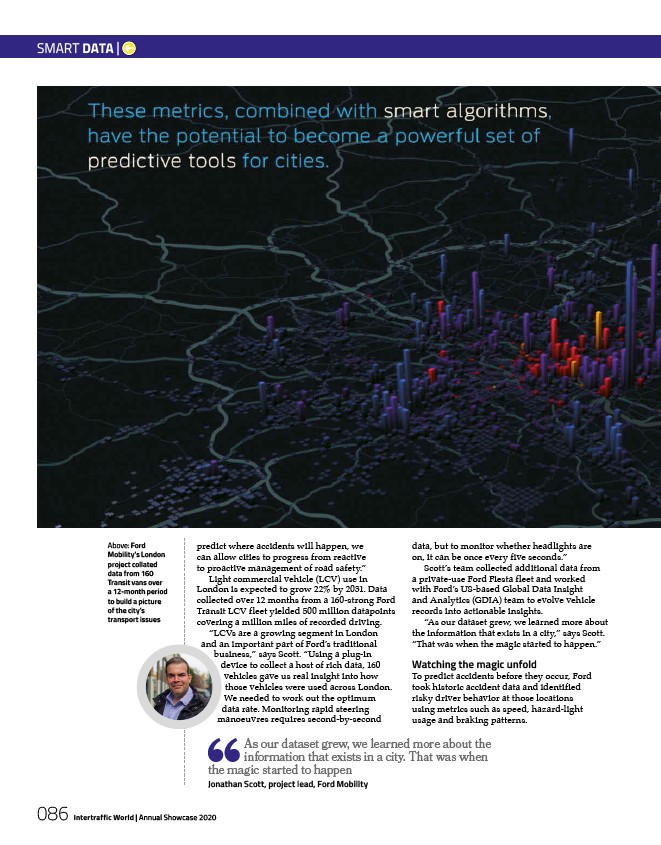
Above: Ford
Mobility’s London
project collated
data from 160
Transit vans over
a 12-month period
to build a picture
of the city’s
transport issues
predict where accidents will happen, we
can allow cities to progress from reactive
to proactive management of road safety.”
Light commercial vehicle (LCV) use in
London is expected to grow 22% by 2031. Data
collected over 12 months from a 160-strong Ford
Transit LCV fleet yielded 500 million datapoints
covering a million miles of recorded driving.
“LCVs are a growing segment in London
and an important part of Ford’s traditional
business,” says Scott. “Using a plug-in
device to collect a host of rich data, 160
vehicles gave us real insight into how
those vehicles were used across London.
We needed to work out the optimum
data rate. Monitoring rapid steering
manoeuvres requires second-by-second
data, but to monitor whether headlights are
on, it can be once every five seconds.”
Scott’s team collected additional data from
a private-use Ford Fiesta fleet and worked
with Ford’s US-based Global Data Insight
and Analytics (GDIA) team to evolve vehicle
records into actionable insights.
“As our dataset grew, we learned more about
the information that exists in a city,” says Scott.
“That was when the magic started to happen.”
Watching the magic unfold
To predict accidents before they occur, Ford
took historic accident data and identified
risky driver behavior at those locations
using metrics such as speed, hazard-light
usage and braking patterns.
As our dataset grew, we learned more about the
information that exists in a city. That was when
the magic started to happen
Jonathan Scott, project lead, Ford Mobility
SMART DATA |
086 Intertraffic World | Annual Showcase 2020